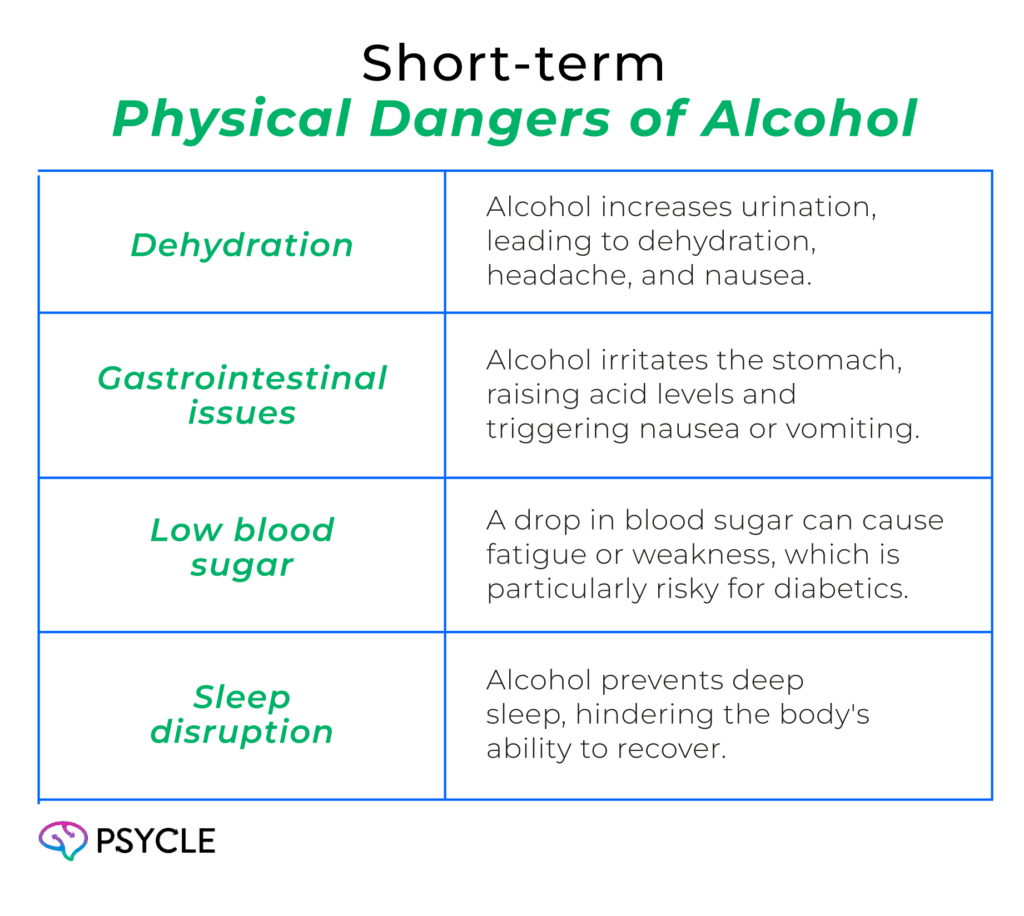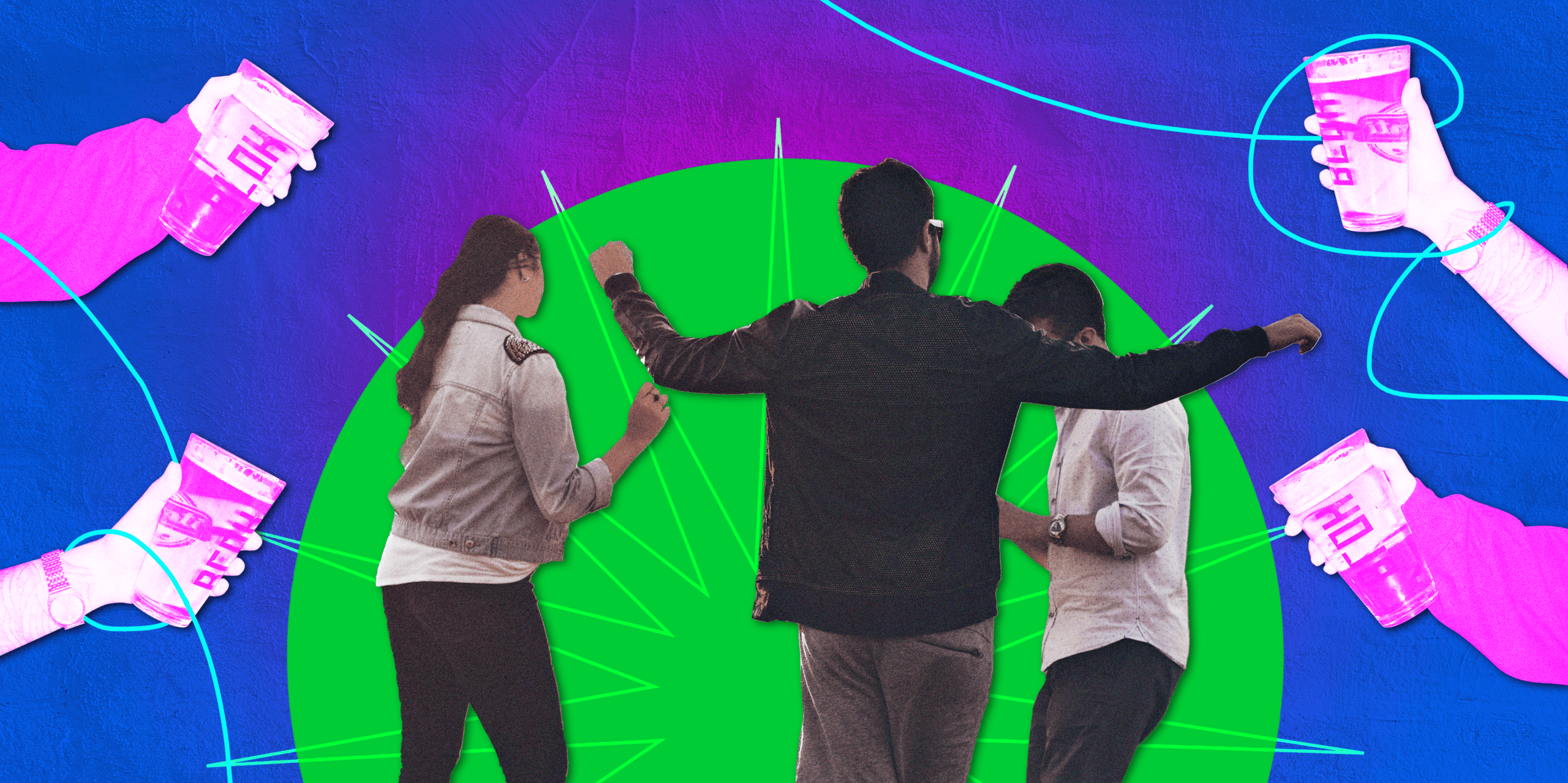You may have started this year with Dry January, but it doesn’t need to stop there. Reducing or cutting out alcohol has major benefits and can lend itself to more authentic social connections.
Going out without drinking may seem like a challenge, especially if this what you’re used to. However, there are plenty of ways to enjoy a vibrant social life with no alcohol involved.
In this article, we’ll provide some tips on going out and not drinking so you can have a more sober and healthier 2025.
Key Takeaways
- Socializing doesn’t have to revolve around drinking. Sober events, alternative venues, and engaging activities like concerts, fitness classes, or dinner parties can provide enjoyable and fulfilling experiences.
- Cutting back on drinking reduces the risk of liver disease, heart problems, and mental health struggles. It also improves sleep quality, hydration, and overall well-being.
- Nights out without alcohol mean lower expenses and fewer chances of making decisions you might later regret, helping you feel more in control.
- Without alcohol influencing interactions, conversations become more genuine, and relationships deepen, allowing for more meaningful social experiences.
- Communicating your decision to stay sober, surrounding yourself with supportive people, and having a plan in social settings can make it easier to maintain your choice confidently.
Dangers of Excess Alcohol Consumption
Drinking alcohol can be fun, but it takes a huge toll on the body. When you drink alcohol, it quickly enters your bloodstream and reaches the brain. The liver works to break it down, but when people drink in excess, the liver is no longer able to do its job. This can cause alcohol poisoning, which can be fatal in severe cases.
Excess alcohol not only impacts the liver but also affects the kidneys, which regulate hydration and waste removal. The effect of alcohol on different organs explains why people can feel characteristic symptoms of a hangover.

In the long-term, excess alcohol drinking can have more serious health consequences, including liver disease, pancreatitis, heart disease, and the risk of cancer. Alcohol can also be addictive and cause withdrawal symptoms like fevers and hallucinations if people stop drinking after a long period of consumption.
As well as physical consequences, alcohol can affect cognitive capacity and mental health. People can feel depressed in the days following alcohol use, and long-term drinking is associated with the risk of dementia and memory impairment.
Benefits of Staying Sober on Nights Out
- No hangovers – You can wake up feeling clear-headed and able to function the next day.
- No next-day regrets – You can enjoy social events without worrying about saying or doing something you might later feel embarrassed about,.
- Saving money – Alcohol can be expensive, and by choosing not to drink, you can significantly cut costs on nights out.
- Better memory – Without alcohol’s effects on the brain, you will be able to fully remember conversations, experiences, and the details of your night.
- Less likely to lose things – Alcohol impairs concentration and coordination, making it easy to misplace your phone, wallet, or keys. Staying sober helps you remain organized and aware.
- More authentic connections – Engaging with others without alcohol allows for deeper, more meaningful interactions, strengthening your relationships.
- Feeling empowered – Making the conscious choice to stay in control of your actions and decisions can boost your confidence and overall sense of well-being.
Tips for Socializing Without Drinking
1. Go to Sober Events
Many events cater to people who don’t drink. You can find alcohol-free parties, wellness gatherings, and group activities that focus on connection without drinking. Attending these events connects you with like-minded people who also prefer sobriety. Meetup is an app you can use to search for interesting sober events around your local area.
2. Meet Up in Places Other Than Bars
Instead of going to bars or pubs, plan to meet your friends in different settings. Meet at a coffee shop, a park, or around someone’s house. You could attend a concert, watch a movie at the cinema or visit a museum for fun things to do. There are plenty of ways to socialize without alcohol being the focus.
3. Order Soft Drinks
If you find yourself at a bar or pub, you can still enjoy the atmosphere without drinking alcohol. Order a refreshing lime soda, a mocktail, or another non-alcoholic beverage. Many places offer creative alcohol-free options that let you feel included without the effects of alcohol.
4. Volunteer to Be the Designated Driver
Offering to be the designated driver is a great way to stay sober while helping friends get home safely. Your friends will appreciate your responsible decision, and you’ll have an easy excuse to skip drinking.
5. Host a Dinner Party
Dinner parties focus on good food and conversation rather than drinking. You can set clear expectations by asking guests not to bring alcohol. This way, the event revolves around delicious meals and meaningful connections rather than alcohol.
6. Do More Daytime Activities
Most daytime activities don’t involve drinking. Plan hiking trips, brunches, fitness classes, or weekend markets. These activities provide social engagement without the pressure to drink.
7. Focus on Physical Fitness
Exercise helps reinforce a healthy lifestyle. Regular workouts improve mood, reduce stress, and make you less likely to turn to alcohol. Joining a sports league, running club, or yoga class can also expand your social circle with people who prioritize wellness.
8. Develop a New Hobby
Picking up a new hobby can help fill your time and provide a great way to meet people. Try learning a musical instrument, taking an art class, or joining a book club. Hobbies give you something enjoyable to focus on instead of drinking.
How to Maintain Sobriety
Staying sober in social situations can be challenging, but setting clear boundaries helps. Be upfront with friends about your decision, and don’t feel pressured to explain yourself. Surround yourself with supportive people who respect your choice.
If you slip up, don’t be too hard on yourself. Changing habits takes time, and setbacks are normal. Focus on the progress you’ve made rather than dwelling on mistakes. Setting small goals, like staying sober for two weeks, can make the transition easier.
By making conscious choices and seeking supportive environments, you can enjoy socializing without alcohol while improving your health and well-being.

